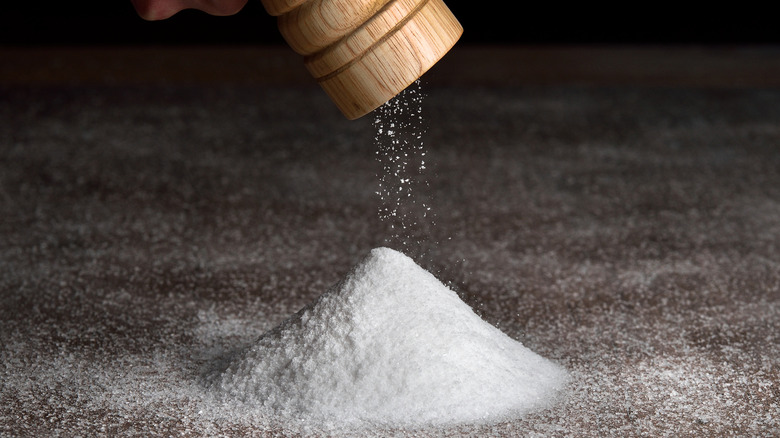You Don't Consume Enough Sodium If This Happens To You
It seems like we hear a lot about people getting too much salt in their diets these days. While too much sodium can cause a variety of health issues, too little sodium can be just as bad. Here's how to know if you're not getting enough.
Sodium is essential to the human diet. According to Harvard Health Publishing, it is needed to "transmit nerve impulses, contract and relax muscle fibers (including those in the heart and blood vessels), and maintain a proper fluid balance."
According to Healthline, too little sodium can increase insulin resistance, increase the risk of death from heart failure, increase levels of bad cholesterol, and increase the risk of death for people with diabetes. It can also make you more susceptible to develop hyponatremia, which is a disease that occurs when there is too little sodium in the blood. It can have symptoms similar to dehydration, and in severe cases, it may lead to brain swelling. This can cause headaches, seizures, coma, and death.
Sodium deficiencies are rare unless you are malnourished
Most people do not have issues getting enough sodium in their diets. You usually need to be severely malnourished to have any of the health issues that accompany a sodium deficiency. Exceptions are athletes who lose excessive amounts of sweat through exercise (via Verywell Fit). According to Verywell Fit, the Office of Disease Prevention and Health Promotion "recommends that American adults consume less than 2,300 milligrams of sodium per day as part of a healthy dietary routine" and that "African Americans, people with high blood pressure, and those over 50 are advised to limit their intake to 1,500 milligrams per day due to the increased risk of cardiovascular disease."
If you need to get more sodium in your diet, there are a few ways to do it that don't involve binging on potato chips. Sports drinks that contain electrolytes can help you replenish sodium in the body. Opt for drinks with minimal added sugar. Foods that are high in sodium include sauerkraut, pickles, anchovies, sardines, and eggs.

